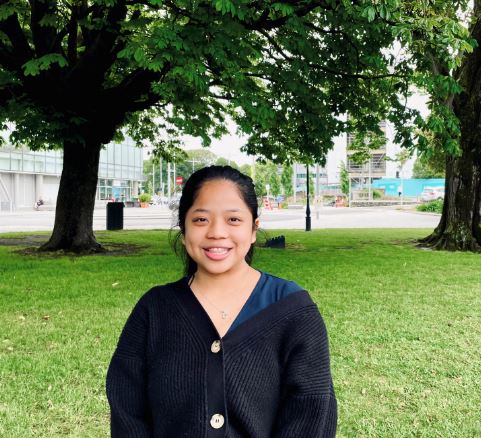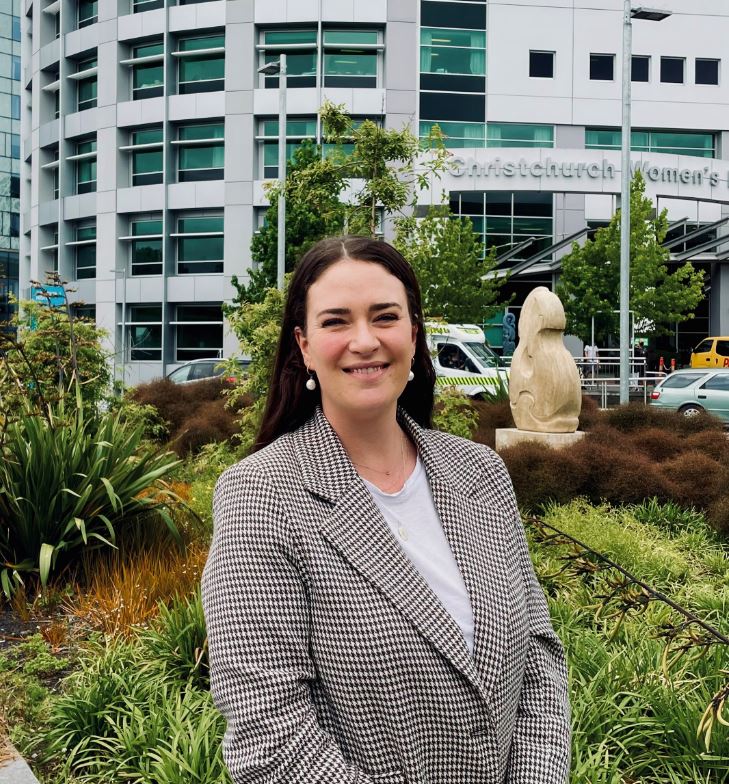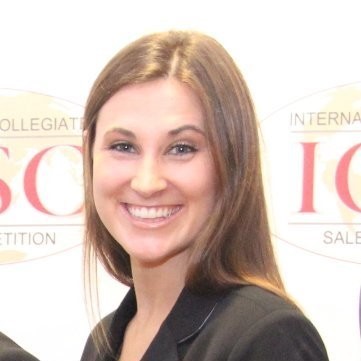
COVID has created challenges but also opportunities for the nursing profession. Canterbury’s education institutes are experiencing a surge in applications, and demand for nurses is high with quarantine, vaccination, contact tracing and community support roles pulling them away from traditional workplaces.
All of Te Papa Hauora’s partners are involved in nursing education. How are they rising to the challenge and making the most of this ‘new reality’?
“Nursing is taking off. COVID has put nursing in the spotlight, from ICU nurses through to those working at the border and in managed isolation.”
Rose Whittle is the Clinical Manager/Co-Head of Nursing at Ara Institute of Canterbury. She says while COVID has disrupted New Zealand’s way of life, there has been a ‘silver lining’ for the nursing profession and for nursing education. Applications for entry into next year’s three-year undergraduate nursing degree is at an unprecedented level.
“We processed over 400 applications for both our February and July Bachelor of Nursing intakes and can only accept 165 each intake due to the clinical placement requirements. Rather than putting people off the profession, COVID has engendered more interest.”
Course applicants include those out of a job or disillusioned following lock-downs, including a number from the travel, tourism and hospitality sectors. Rose says some of the reasons for increased interest are job security, the wide variety of roles for nurses today, and being part of a profession making a difference.
Despite a deluge of applications, Ara can take only as many students as it can place in work placements, she says. Clinical experience in the health system is crucial for students. In some parts of the country the demands and ever-changing nature of the COVID response saw student placements put on hold or dovetailed into ‘safe’ areas. In Canterbury the opposite happened with the Canterbury DHB collaborating with all of Te Papa Hauora’s tertiary partners to find innovative solutions and keep students involved.
One example is a collaboration between Ara and Canterbury DHB where Ara adapted its Bachelor of Nursing degree so students can join the MIQ workforce, assist with contact tracing and qualify as vaccinators. Rose says Ara is responding to the current environment. “We have adapted the curriculum to current health situations rather than cutting anything out. Assessment processes are always required, but topics change so our case studies and clinical simulations, for example, now incorporate COVID.”
Rose says continued collaboration with the DHB will be important as New Zealand, and its nursing workforce, enters a new phase of COVID management. “There will be wider spread of COVID in the community. To continue their clinical placements students will need to wear masks, and in some clinical areas N95 masks. Students will need to be mask-fit tested and educated, and we’ll do this collaboratively with the DHB and its Infection, Prevention and Control team.”
Becky Hickmott is the Canterbury DHB’s Executive Director of Nursing. She says nursing graduates from Canterbury are highly respected around the country and ‘we have to fight hard to hold onto them’. “They are highly desirable, in part due to the good relationships between local nursing schools and the DHD, assisted by collaboration with Te Papa Hauora.”
Ara educates undergraduate nurses, and with the University of Canterbury, also offers a two-year graduate-entry programme for those with a degree. The University of Otago Christchurch offers a two-year graduate-entry Masters qualification for people with an existing degree, as well as a wide range of Nurse Practitioner programmes and postgraduate programmes for registered nurses.
Becky says Canterbury’s ability to meet the increased needs of COVID has benefited from existing relationships with our local educational institutes, a fundamental strength of Te Papa Hauora.
“We have a strong history of working with our health education industry. After the earthquakes health stood up a response and education almost immediately asked ‘What can we do to help?’ In COVID times the education sector has been under enormous pressure transforming the delivery of education, but they still contacted us and said, ‘What can we do?’
She says nursing students have been an integral part of the pandemic response workforce. “They are working hard alongside other health professionals as part of the team. It’s a win-win situation. We need them, and they need to complete their education requirements. If we don’t give them those real-world experiences, it affects the health workforce of the future.”
The Canterbury DHB is now planning for when COVID is more prevalent in the community and more staff are needed. “We are going to be living with endemic COVID and this will impact the whole system. We put an SOS out to local tertiary providers to see if their students were willing to be part of our ‘surge’ workforce. We were hoping for about 50 or 60 students but 140 plus put their hand up to assist us.”
Cathy Andrew is Director of Nursing at the University of Canterbury. She oversees the gradate-entry nursing programme it delivers with Ara. Cathy agrees the earthquakes were key in creating strong and healthy working relationships at all levels in the Canterbury health and education sectors. The relationships between the Te Papa Hauora partners has enhanced the region’s pandemic response.
“In Canterbury, rather than in a crisis thinking ‘get the students out of here’, the health system and educators work together to include them. They are leaders of the future so involving them in these unforeseen situations teaches them to deal with changes that inevitably happen.”
Cathy says the pandemic has created a higher profile for nurses and respect for the profession and the attributes it requires. “In an unplanned situation like the pandemic you stick to the principles, but you adapt them slightly to the situation. It’s what nurses do all the time. They are using the same skills in a pandemic as they do in the usual healthcare situation. This (COVID) is the greatest learning experience so students need to be part of it.”
Cathy says the proximity Te Papa Hauora Christchurch Health Precinct offers is great at any time, but particularly valuable in a crisis. “We are experiencing phenomenally rapid change. The ability to walk across the Precinct and say ‘This is happening, how is this going to impact, and how can we collectively respond? has been incredible. There is such a willingness to work together and think outside the square.”
Adaption, collaboration and lateral thinking has been central to the University of Otago Christchurch’s response to COVID, and the needs of nurses and other health professionals.
Director of the Centre for Postgraduate Nursing Studies Philippa Seaton says, like other providers, they have experienced a rise in applications for their courses, especially in the postgraduate pre-registration Masters programme where people with a previous degree can become eligible to register as a nurse after two years study and work experience.
“COVID has made people think about nursing. It’s about people looking for a profession long term that they feel ‘matters’ and through which they can contribute to society. Our research with graduate-entry students clearly shows they have an altruistic motivation for becoming a nurse and have often left occupations that didn’t align with this value.”
Philippa says COVID has also created a need for registered nurses and other health professionals to better understand infection planning, control and management. The Centre has responded to this need by developing a specialist course. It came about because of conversations between Centre staff, University infection control expert Professor Steve Chambers and Ryman Healthcare. All agreed on the need for more specialist training. The Canterbury DHB’s Nursing Director of Infection Prevention and Control was also closely involved in development of the course. From 2022, among the specialist qualifications offered by the University of Otago Christchurch for registered nurses, the Centre will offer infection prevention and control papers, available to any health professional.
“COVID is not going away. And if it’s not COVID it will be something else. Our papers will look at the fundamentals of infection and how to manage it. Taking into consideration the extra pressure that COVID has put on the nursing workforce, the University of Otago Christchurch has been adaptive and flexible with delivery of courses to work with registered nurses who through the pandemic, have continued to engage in postgraduate education to bring the best care to their patients. People can tailor learning to their work situation and workplace. As educators we need to keep adapting and meeting the needs of our future workforce, which looks to be bright.”
Spotlight on students

Ara Institute of Canterbury
The pandemic made completing a Bachelor of Nursing degree more challenging for Upasna Rai but also gave her the opportunity to train and work as a vaccinator.
Upasna has six months of study left before she completes her Bachelor of Nursing degree at Ara Institute of Canterbury. She chose to move to Christchurch from Singapore three years ago specifically because of Ara’s pre-health course and nursing bachelor’s degree.
“I feel like nursing offers a lot of opportunities and lots of variety. I want to give back to the community that has welcomed me and to experience meeting and helping lots of different people.”
Studying during COVID had been tricky with more online learning and fitting all the necessary coursework and placements in during a very busy time for the health system, but Upasna says ‘you have to make the most of it’.
One of the opportunities was learning about vaccination as part of her course and gaining the qualifications to become a ‘provisional vaccinator’ and work at Canterbury DHB clinics.
“I wanted to help people get vaccinated so volunteered to do a placement at the DHB clinics. I’ve really enjoyed it and next year hope to give up my fast food part-time job and work as a vaccinator outside my study.”

University of Canterbury / Ara Institute of Canterbury
The chance to easily move into a career of caring and be closer to family drove former radio producer and self-confessed ‘people person’ Caitlin Marett to study nursing.
Caitlin has just finished the two-year Master of Health Sciences Professional Practice (Nursing) and Bachelor of Nursing – a joint initiative between the University of Canterbury and Ara.
She did a Bachelor of Broadcasting and worked for more than a decade as a producer on radio shows, including the Fletch, Vaughan and Megan show based in Auckland.
“I was in an amazing job and loved my team but as the years went by I felt more and more unfulfilled. I was volunteering for the Child Cancer Foundation and Ronald McDonald House and found myself looking forward more to that than my paid job.”
Caitlin’s mother is a nurse in Fairlie and she never thought she would enter the profession herself. But after thinking about her desire to care for people and meet see a variety of people in her working life made her reconsider.
“I love people and meeting them and being able to physically help them is the cherry on top.”
Studying in Canterbury was the obvious choice because of proximity to family, the two-year graduate course, and the ‘relaxed’ lifestyle the region offers.
Caitlin says training during the pandemic threw up a few extra challenges – especially getting enough time in placements – but always felt supported by her education team.
In the New Year she will start work at the Canterbury DHB’s haematology unit

University of Otago Christchurch
American business graduate Josie Dickerson is realising a long-standing ambition to be a nurse and work with the human body by doing the University of Otago’s two-year Master in Nursing Science course.
“Nothing (work wise) really filled my cup or felt right. I always wanted to be a nurse and understand more about the human body and health and wellbeing. When I was travelling I trained as a yoga instructor and became more focused on this passion of mine. When my partner and I settled in Christchurch I found out about the Otago course and have now finished my first year.”
When Josie first arrived in Christchurch she worked in the travel industry – until the pandemic hit and gave her the motivation to move into her dream career.
“It (studying nursing) feels like the best choice ever, and it’s great to be part of the Christchurch community working towards my goal of caring for others. Within two months we were on placement and getting to experience what being a nurse is like. I’ve enjoyed all my placements but particularly my paediatric one where I was working in the community with families and whanau and public health nurses.”
If you are interested in studying nursing or furthering your career, find out what is available here in Canterbury.
University of Otago Christchurch – https://www.otago.ac.nz/christchurch/departments/nursing/
Ara Institute of Canterbury – https://www.ara.ac.nz/products/programme/ch3730-nurs-bachelor-of-nursing/
University of Canterbury / Ara institute of Canterbury – https://www.canterbury.ac.nz/health/qualifications-and-courses/nursing/
